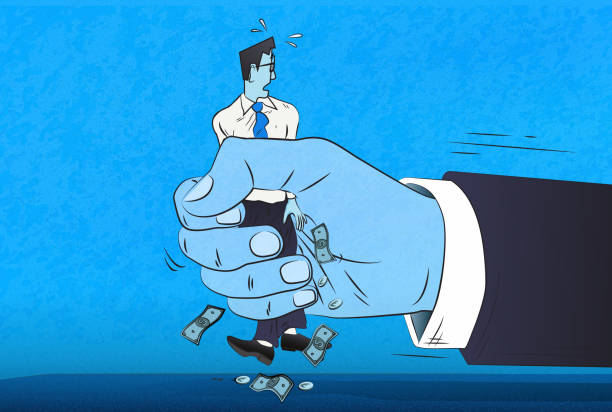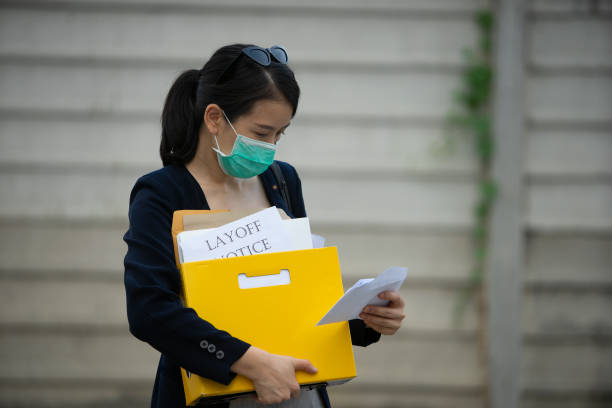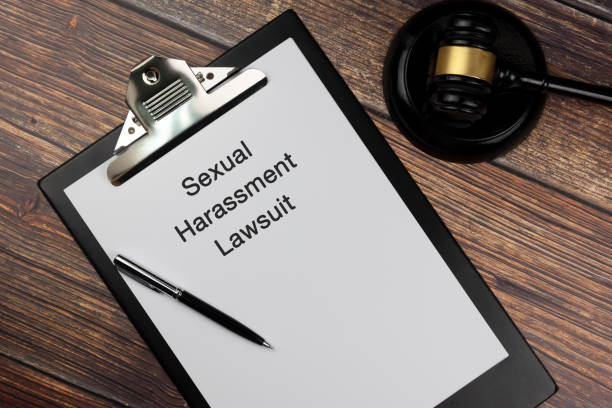
Non-disclosure agreements: How they benefit abusers
Sexual harassment non-disclosure agreements:, have come under scrutiny across the globe and in Australia following the revelations of the MeToo movement. In theory, confidentiality agreements intend to prevent the disclosure of sensitive information and prevent reputational damage surrounding cases of workplace sexual harassment. However, there’s a growing concern that sexual harassment non-disclosure agreements (commonly known in Australia as a Deed of Release) are being widely misused. And that in practice, they benefit the interests of employers and perpetrators, rather than victims.
In this article, we explore the reasons why sexual harassment non-disclosure agreements: are often harmful to employees. We also explain how employers misuse them to their own benefit. And we highlight how the nation’s laws around sexual harassment non-disclosure agreements are set to change. That is, to provide more equitable treatment of victims, rather than benefiting employers and perpetrators.
What is a sexual harassment non-disclosure agreement?
A workplace sexual harassment non-disclosure agreement is a legally binding contract between two parties, namely an employer and an employee. It requires both parties to comply with obligations of confidentiality. That is, they are obligated not to discuss or disclose details of a settlement agreement pertaining to a workplace sexual harassment case.
Non-disclosure agreements are typically put in place by an employer when a victim receives compensation from them. The purpose is so that the victim doesn’t sue their employer later on for the trauma they experienced. Or the victim latter realized they settled to cheap. They can also help employers ensure that they don’t suffer reputational damage by preventing the victim from telling their side of the story.
These documents referred to as Deed of Releases are not only used in cases of sexual harassment, but also those concerning other workplace matters too. For instance, they can be invoked to keep the details of unfair dismissal and general protections cases confidential. And like sexual harassment non-disclosure agreements:, those used for other workplace matters are often to the detriment of the employee, and to the advantage of the employer.

The worrying dangers of sexual harassment non-disclosure agreements
Last month, the dangers of workplace sexual harassment non-disclosure agreements: came under the spotlight at one of Australia’s most high-profile media events. Sex Discrimination Commissioner at the Australian Human Rights Commission (AHRC), Kate Jenkins, made headlines when she told the National Press Club about the gross misuse of sexual harassment non-disclosure agreements:. She explained how they disempower victims, protect perpetrators, and keep employers in the dark about sexual harassment taking place in their workplaces.
Ms Jenkins said that sexual harassment non-disclosure agreements benefit perpetrators and harm victims in several ways. She said that they allow perpetrators to “move from workplace to workplace or even stay in the same workplace and even continue to harass.” Ms Jenkins also said that sexual harassment non-disclosure agreements “silence people who experience harassment.” They force victims to be silent and mean that they “still can’t talk about something that had happened to them.”
Sexual harassment non-disclosure agreements also prevent employers from knowing the full extent of sexual harassment in their organisation. Ms Jenkins said that “they hide information that corporate boards or leaders need so that they may never even know there had been issues.” The prevalence of sexual harassment non-disclosure agreements is unknown, given their secretive nature. Ms Jenkins said that they “shouldn’t be the standard” and that there should be “nuance around what is kept confidential.”
Employers largely against reforming non-disclosure agreement laws
In her National Pres Club address, Ms Jenkins also highlighted the shocking prevalence of sexual harassment across Australia’s workplaces. She said that 40 per cent of women report experiencing workplace sexual harassment. And that 26 per cent of men have also reported being victims. With statistics like these, many believe urgent law reform is needed concerning the obligations employers have to prevent workplace sexual harassment. In particular, to the laws governing sexual harassment non-disclosure agreements:.
Australian employers, however, have a huge incentive to maintain the current non-disclosure laws. Namely, because they allow employers to avoid any reputational damage as a result of sexual harassment taking place under their watch. And because they prevent victims from taking legal actions against them later on. Ms Jenkins has long championed reform of the laws governing workplace sexual harassment non-disclosure agreements:. Following the fourth National Inquiry into workplace sexual harassment in Australia, in 2020 she delivered the AHRC’s Respect at Work Report.
The Report details how Ms Jenkins personally wrote to many large Australian employers asking them to assist in the National Inquiry. Specifically, she asked them to issue a limited waiver of the confidentiality obligations in non-disclosure agreements pertaining to cases of sexual harassment in their workplaces. This request was made so that those involved in the sexual harassment cases could make confidential submissions to the National Inquiry. However, only 39 organisations across Australia agreed to issue a limited waiver.

Reform of sexual harassment non-disclosure agreements: is imminent
The Respect at Work Report included 55 recommendations to strengthen Australia’s sexual harassment laws. Recommendation 38 called for the AHRC and the Workplace Sexual Harassment Council to develop a guideline that identifies best practice principles for the use of non-disclosure agreements in workplace sexual harassment matters. This guideline is to inform the development of regulation on non-disclosure agreements.
Despite opposition to sexual harassment non-disclosure agreement law reform from many of Australia’s employers, the process is already under way. In early 2022, the Federal Government committed to implementing all 55 recommendations of the Respect at Work Report. And as part of that commitment, the Anti-Discrimination and Human Rights Legislation Amendment (Respect at Work) 2022 Bill was introduced in September. Once the Bill becomes law, it will make non-disclosure agreements: more equitable to victims. And more broadly, the legislation will place the onus on employers to be more proactive, and less reactive, when it comes to addressing workplace sexual harassment.
Specifically, the legislation will outline that employers have a “positive duty” to prevent workplace sexual harassment and discrimination. It will also compel employers to outline the structures and procedures they have in place to report incidents of sexual harassment. Ms Jenkins said that the Bill “shifts the emphasis from a complaints-based model to one where employers must take action.” And in particular, she says the Bill will help ensure employers lift the veil of secrecy around cases of workplace sexual harassment.
“The external climate has made boards realize that even if you don’t want to be disclosing details, or if you don’t want to be monitoring sexual harassment, the community, the workforce and investors now expect more of organisations. Secrecy is now regarded quite badly,” Ms Jenkins told The Sydney Morning Herald in November.
Victoria set to introduce sexual harassment non-disclosure agreements: law reform
Reform to agreement laws are taking place on a state level too. In July, the Victorian government announced that it will soon introduce laws to restrict the use of non-disclosure agreements in cases of workplace sexual harassment. It will become the first Australian jurisdiction to pass such legislation. The announcement was made by the Minister for Workplace Safety in Victoria, Ingrid Stitt, who released the Victorian government’s response to the raft of recommendations made by the Ministerial Taskforce on Workplace Sexual Harassment.
The Taskforce, which was created in March 2021, found that sexual harassment non-disclosure agreements: are often misused. That is, to silence victims and hide serial offenders. Also, to protect the reputations of employers and help them avoid responsibility for workplace sexual harassment. The Victorian government accepted the Taskforce’s recommendations “in principle.” It noted that due to the complexity around sexual harassment non-disclosure agreements, significant work will be required before legislative amendments can be made.

Reform of sexual harassment non-disclosure agreement laws is taking place worldwide
The Taskforce specially recommended that any Victorian legislative amendments should be based on the Irish Employment Equality (Amendment) (Non-Disclosure Agreements) Bill 2021. If made law, the Irish Bill will prevent employers from using a non-disclosure agreement if an employee is victim to or makes allegations of sexual harassment. That is, unless the employee wants to have a non-disclosure agreement. The Irish Bill also requires a sexual harassment non-disclosure agreement to meet certain criteria.
The US recently introduced a law banning sexual harassment non-disclosure agreements
Neither the Australian federal or Victorian law reforms call for an outright ban on sexual harassment legal documents in workplaces. But in the United States, that’s exactly what’s happening. In November, the US Congress passed the Speak Out Act to provide a voice for victims of workplace sexual harassment and violence. In the US, new employees are often obligated to sign non-disclosure agreements as part of the human resources onboarding process. Currently, around a third of US employees are bound by non-disclosure agreements.
US employees typically sign legal documents for a variety of purposes. For instance, to protect their employer’s proprietary information. Or to ensure they can’t reveal details of any workplace sexual harassment they may experience. The Speak Out Act means that sexual harassment non-disclosure agreements: that employees signed when starting their job will no longer stop them from speaking out about their experiences. The law makes non-disclosure agreements unenforceable specifically with respect to sexual harassment. It does, however, only apply to non-disclosure agreements signed before the sexual harassment has taken place.

Have you been sexually harassed in the workplace?
Suffering sexual harassment in the workplace, whether verbal, physical or both, can be a very traumatic and emotional experience. But it’s important to remember that Australia’s laws provide the means for victims to seek justice through our courts.
We at A Whole New Approach are Australia’s workplace mediators, with over 20 years’ experience helping victims of workplace sexual harassment. We can provide the expert guidance you need to ensure you can seek redress through Australia’s courts and bring your perpetrator to justice. Been dismissed or forced to resign call us to discuss your situation. Our friendly team understand the trauma that sexual harassment victims experience, and the fear that comes with taking legal action.
Call us today on 1800 333 666 for a confidential discussion about how we can help you take action.













